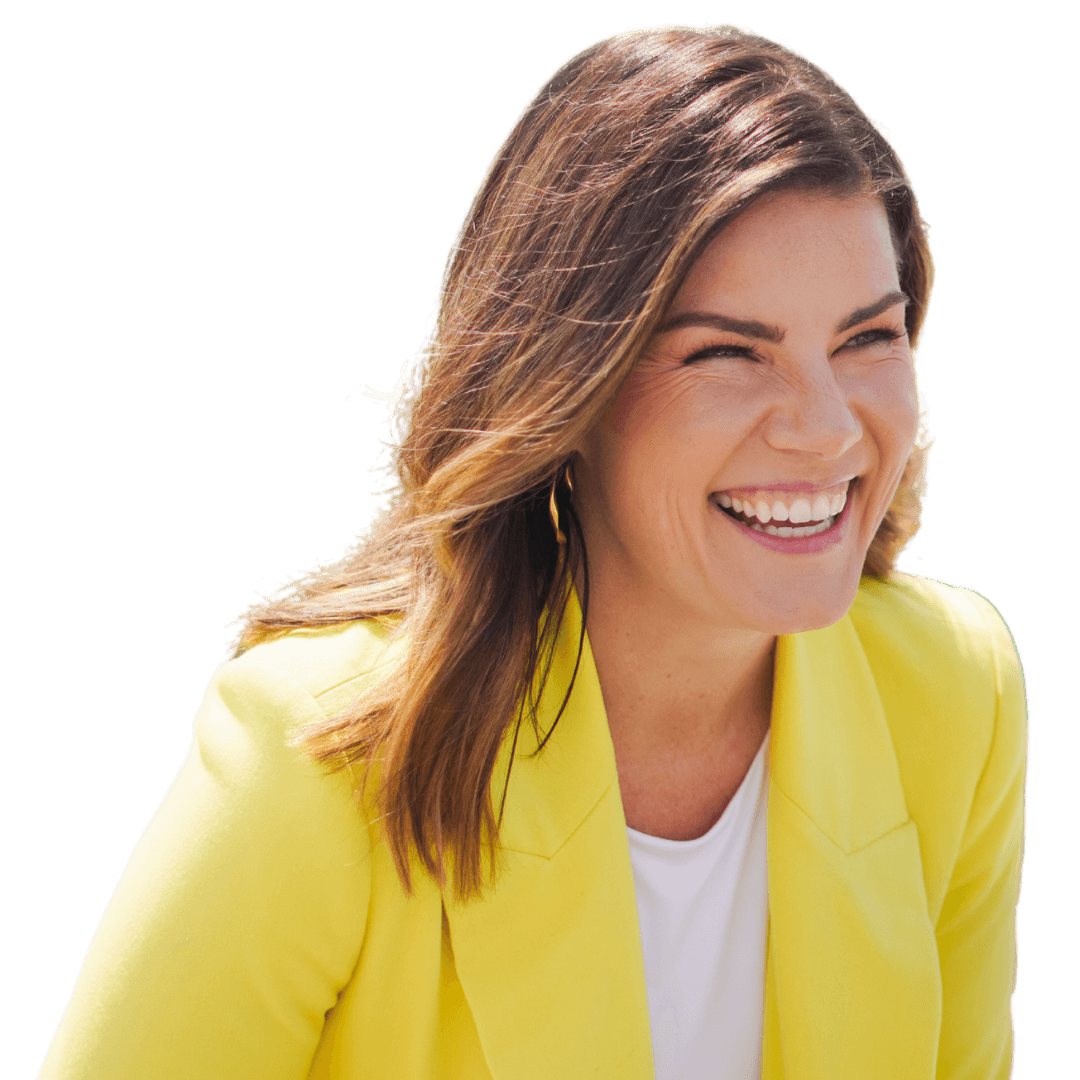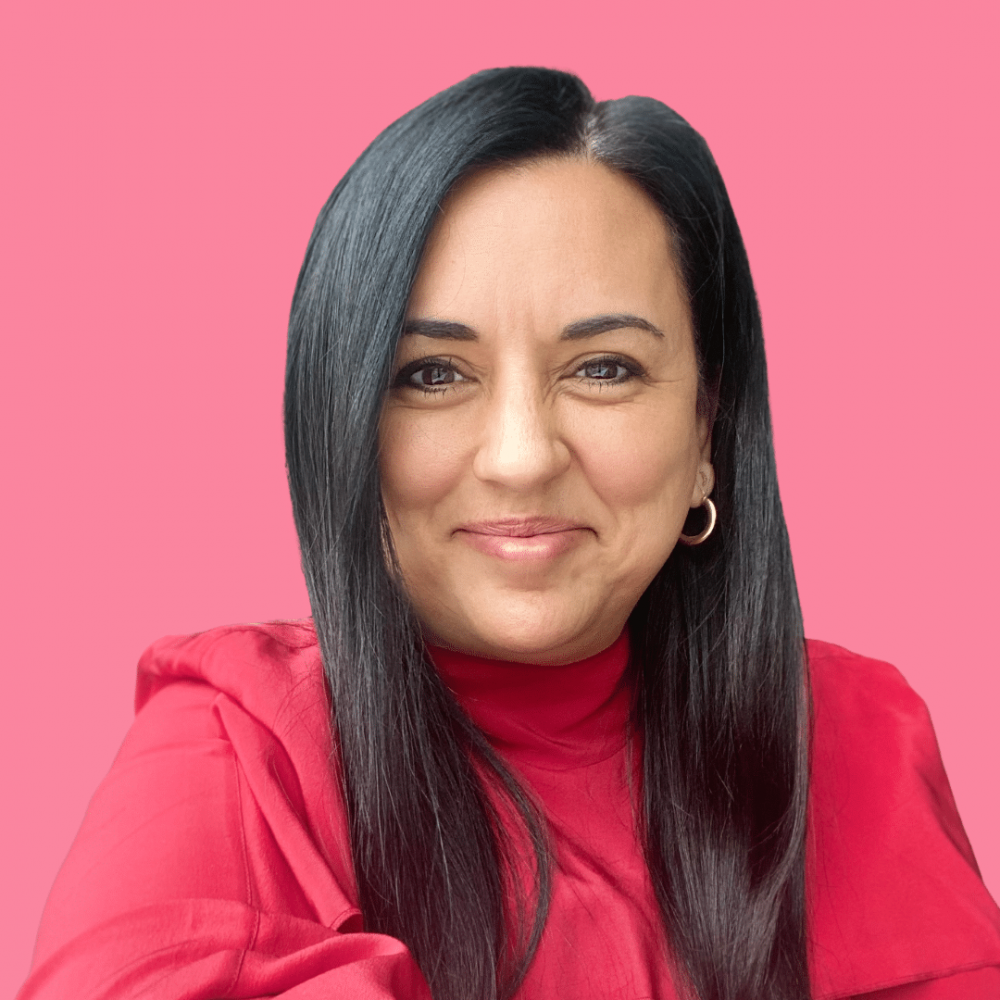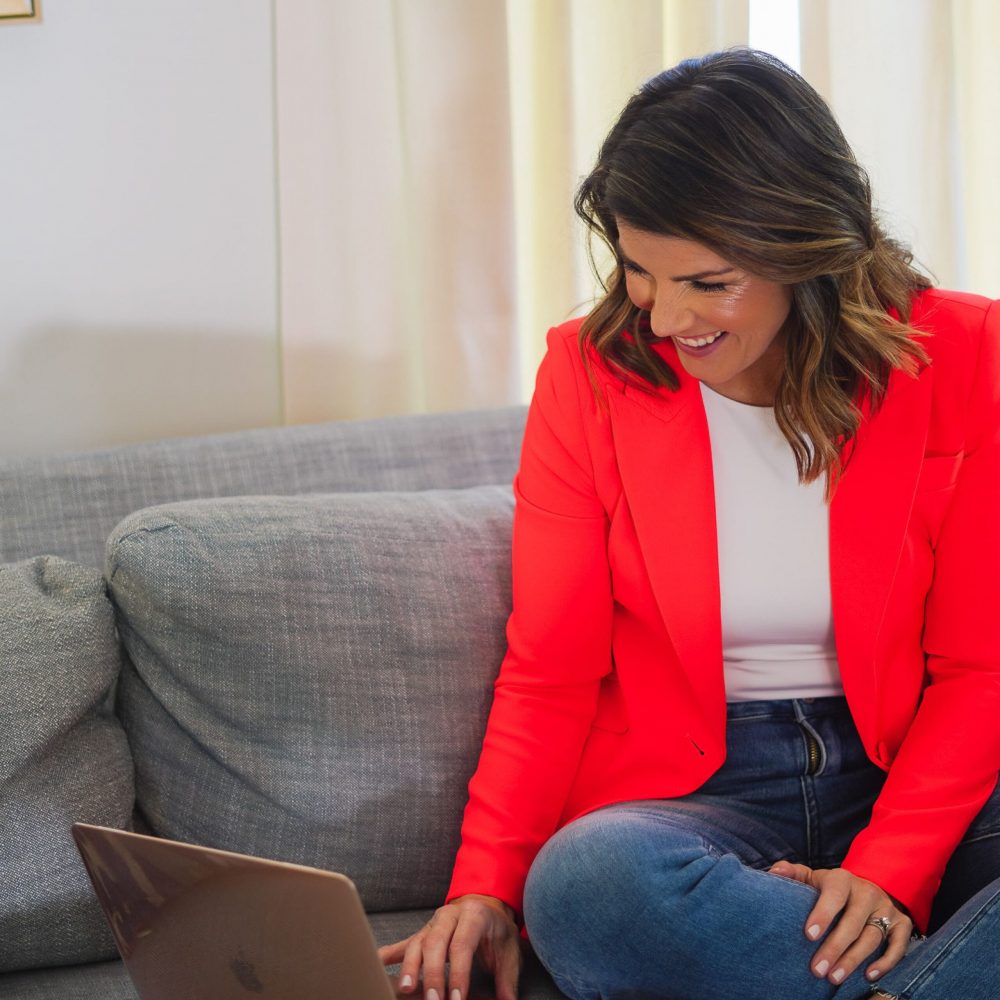Andrea Nordling 0:00
Hello, and welcome to the profitable nutritionist podcast. My friend Andrea Nordling. So glad you’re here. I want to before I even start talking about our ultra controversial topic for today, which is my favorite kind of topic, I want to invite you to come and connect with me on LinkedIn and say hi, I have a lot to say about LinkedIn, and why we’re back on LinkedIn or why I’m back on LinkedIn, but not really me, but kind of me. Let’s say, I want to do some future episodes, unpacking all of the LinkedIn strategy. What’s going on with LinkedIn? Who is talking to you when you come and connect with me on LinkedIn? Is it me? Is it not me? Sometimes is it sometimes isn’t? It’s not about there’s a real human there also have strong opinions about bots. Okay. Anyway, come and connect with me on LinkedIn. Say hi. And let’s have a conversation there. Now, back to today’s controversial topic. Like I said, this my favorite kind of topic I like, I like going places where either you’re going to love it, or you’re going to have a visceral hatred response. It could be either one, I don’t know. Are you ready? We’re talking about debt. We’re talking about Dave Ramsey, and we’re talking about money. And we’re talking about thoughts about money and thoughts about debt. And all of the things today, including, I’m going to be sharing with you some of my Dave Ramsey PTSD. And maybe you have some of the same thoughts or have had some of the same experiences, in which case, some of your Dave Ramsey beliefs and thoughts about debt and about investing and all of those things might be costing you a lot of money. And then we have to wrap this up and kind of put a bow on it in terms of the current climate of the economic arena. In our country in the world. The word recession is being thrown around a lot. Yes, we’re gonna go there. Okay. All of it. That’s what we’re talking about today. So quick bio on Dave Ramsey. If you don’t know who Dave Ramsey is, where are you? If you don’t know who Dave Ramsey is, I’m just kidding. Some people don’t. He is a very well known in some circles. Financial guy, financial guy, I’m gonna go financial guy. Anyway, he talks about debt. He talks about ridding yourself of consumer debt, paying cash for everything, not holding debt, and basically being wildly successful in your life by not paying interest on loans. That I’m like completely simplifying what Dave Ramsey does, but in a nutshell, he’s a debt guy. He talks about not being in debt, and I have read Dave Ramsey’s books, I have implemented his systems and processes and there was a time in my life when I was very, very grateful to Dave Ramsey. Still am. I’ve learned a lot from him. He has radio shows. He has like I said, books he’s does public speaking his radio show is really probably how most people know him. And he’s quite famous in in circles. Like I said, I feel like I’m being very I’m not being intentionally bad because the point of this isn’t who Dave Ramsey is. The point is, why are we talking about it today? So for context, in May, so a few months ago, I was at an event in Nashville, Tennessee, which is where Dave Ramsey’s headquarters is located just south of Nashville, and Franklin, and I was there for a mastermind event with my business coach and my peers and my mastermind, which consists of a lot of types of businesses. So there are online businesses like me, there are brick and mortar businesses, there are franchises, there’s all sorts of different business models. So as part of this event in Nashville, we did a tour of Dave Ramsey’s campus, his property where his businesses and I’m going to call it a campus. It’s huge. It’s beautiful set in like the rolling hills of I don’t know if you’ve ever been in Tennessee, it’s absolutely beautiful. So this is a very picturesque place. It looks like a wonderful place to go to work, multiple buildings, there’s a big event facility, then there’s a huge space with multiple floors that they have a sales floor and they have, I don’t even know what they have. They have like their corporate headquarters, they have all of the things including a big sound studio where Dave and other guests record their radio show. So it’s as you walk into this facility, which is beautiful, like I said, big ceilings big open. Then there’s windows on one side that show into the sounds the sound studio, where they do live tapings of the radio show. And so we were there actually, during a live taping of the show, we got to take a picture with Dave with our entire group in between segments. They have it down to a science on how fast as he can come out, take a quick picture. You have to be in the right place at the right time. We had to be all ready to go before he even came in. He slid in we took the photo he laughed. He said thank you. And we watched this well oiled machine. This going there. He had guests on the show. There were other people doing segments. They were like coming in and out. It was really cool to watch the taping of the show, which is very high production. And it wasn’t always that high production. So if you don’t know who Dave Ramsey is, you may not know this or even if you do you may not know he had very humble beginnings. Well, he had his on financial crisis that led him to then get out of debt, start teaching about getting out of debt. And I believe he started teaching out of like selling pamphlets. Or maybe they were maybe he wasn’t even selling that maybe they were free of the back of his car. And it has grown into this amazing facility, like I said, where they’re reaching millions of people, they’re selling books, they have a super successful radio show syndicated all over the place. And they have, they have Financial Peace University, which is a program that is taught at a lot of churches, and a lot of organizations teach it, they have their own programs that you can pay to be part of group programs and mentoring there, they have resources for businesses, all sorts of things. So it’s huge, okay. And that’s why we were there, as part of my mastermind, it was looking at the business side of this, like this empire kind of that he has created, which was really cool. So here are some of my big takeaways from this excursion. But I’ll tell you about what I thought about that, and kind of get the wheels flowing for you in terms of, you know, just thought provoking what my thoughts were. And then we’re going to talk a little bit about thoughts about debt and thoughts about money in general, because it does kind of all tie in. So here’s some of my big takeaways from visiting the Dave Ramsey. So I believe it’s called Ramsey solutions. Yeah, they call it Ramsey solutions. culture, culture, culture was huge meaning the building, the employees, the processes, every single component that we could see from what was going on how people were greeting us at the door, how people were communicating the signage on the building, the way that they like, talk to each other, we saw, like coworkers, communicating all of that was very cohesive, cohesive is the word I want to use. Clearly, they have a lot of training. And a lot of thoughtfulness goes into the culture of this company, the people that work there, believe in the culture, they perpetuate the culture, the facility itself, like really lends itself to, you know, kind of jumping all around. But there was a big meeting space in the main building before they had built this event center that I think has kind of replaced it now. But there’s a big meeting space where they do devotions, and prayer time. And that’s, I think, optional, but highly, like, highly utilized by the staff, the culture of the company is just baked into everything. There’s scripture on the walls, there’s people saying the same things. They have a bell that rings, and when I say people saying the same things, I mean, people were consistently talking to us about disrupting the toxic money, conversation, something wrong, I think that that was it actually disrupting the toxic money conversation over and over and over again, obviously, in the culture of this company, that’s something that is really recognized and drilled into them over and over and over again, and they’re having lots of conversations about the toxic money conversation, because people kept repeating that. So I was seeing, like culture, culture, culture all over the place, just people that were really good examples of it, like it was very cohesive, it was very consistent all over the place on their sales floor, they were ringing a bell, every time they made a sale that was really cool to see people were very supportive of each other. It looked like a very collaborative environment for the employees, which was cool. So from a business owner standpoint, I was taking mental notes of like how all of the employees were like passing each other in the hall, how they were spending their time what their desks look like, just kind of a professional curiosity, how this huge mechanism and like organism, I guess it is, was all working together. I think that that’s kind of cool. Especially because I’ve never had a corporate job. So maybe for somebody that has lived cubicle life, it would be less intriguing to me. I’ve never had a corporate job, I’ve been self employed, had my own companies, and then solo a lot of the time for my entire adult career. So I was cool to kind of see that get inside, like, what it was actually like, they’re very, very, very cool. Also, they had a start to finish timeline of what the evolution of the business has been. So it had showed pictures of Dave selling those pamphlets out, I don’t know if they were selling if it was free, it doesn’t matter. Those these are nuances that aren’t really important in the conversation, but they showed him like selling that out of the backseat of the car and then what happened next and what happened next and there was a timeline you kind of walked through a tunnel basically where there was photos on each side and it told the story of like when his first book was published and then what happened and then what opportunities became available and then when they moved offices and just cool thanks. I think it was a very inspirational to see how he was so small in the beginning and it was such a tiny operation there was like somebody who he knew that baked tarts and cookies and stuff and she liked to support him she
liked his message so she would like bring the baked goods and now they have her recipes in a bakery inside of the main building where everybody it’s like free they everybody that shows up we were part of the crew was like hey, come and have some tarts from so and so I can’t remember her name but it was like her recipe. He is and it was just a lot of throwbacks to, to every step of the way as this business has grown, which I thought was really cool. So it was nice to see the timeline, and to be reminded that this huge thing that seems so it’s just, I mean, it’s obviously very successful. But it seems also so robust. And I’m sure it is started so small, and then what it looks like every step of the way, it was just as a business owner was a great reminder to me that we can’t look at someone else way further ahead. And think that that’s where we should be, because there are all of these steps. It happens for everybody. Everybody has the the very small beginning and then the messy middle before they’re at that point where we’re like, wow, how do you get there, it was just a great reminder of that. So I loved seeing that in real time. I love seeing all of the photos that they had, and everything that they shared was amazing. Also, a big takeaway for me in seeing this facility was that more is more. What do I mean by that? I mean, Mike, more voices and more collaboration. So something that was very apparent, as we walked through this tunnel, like I said, that showed the timeline of Dave’s business and himself and like how that has all evolved is it got to a point where you could see that there were a lot more voices coming into the mix. He has other authors that are getting published underneath. I think, like underneath there, what do you call that? What is it under their label, it’s definitely not their label. But you know what I’m saying. There’s other people that are talking about some of the same things he talks about, but going into greater detail, and they’re bringing their own personal expertise, and their insights and like different voices, and they’re amplifying the message through more people a he has other radio personalities, it’s not just him on the radio for years and years and years, maybe even decades, it was just Dave Ramsey, then it turned into the it was the Dave Ramsey show, then it turned into the Ramsey show when I think it was his daughter that started doing radio shows with him. And then they brought in more people. And now it’s just more and more and more, it got more valuable, not less valuable, the more voices that they added to the mix. And I really love seeing that. And it gets the wheels turning for me as someone who’s the voice of my own business, and thinking about how can I and I’ve started to do this, but I’m like really thinking in these terms as of late How can I amplify my message and the vision of my business by bringing in people that have different specialties than I do and bring in bringing in like less of me more of other people’s voices. So I think it’s an interesting thing to explore. And I loved seeing that in real time by walking through this tunnel and seeing Oh, okay, here’s the timeline of when he brought in this person and this person, this person, and now they have an insane number of people that are helping to get the message out, which is great. Speaking a message, my last point of something that I really found through visiting that facility was that they do have a very cohesive message. So I know that I said this already. I touched on it, but I want to like circle back, the people were saying the same thing. They knew what the mission was of the company, they knew what the values are of the company. And everything was tying back to that, which I think as a business owner, again, was really important for me to think about what is the mission of my company, what are our values is something that it has been within the last year actually written down, something we actually revisit. Now, as my team is growing, it’s something that is top of mind for me to make sure that everyone is that is top of mind for them very, very meta that people understand what our values are, and that they’re thinking about that mission too. So all that to say it was a great little outing to go to Ramsey solutions, see their beautiful facility see kind of how I think that they were our tour guide that brought us through the facility, what did a great job of explaining, like how things kind of run together, what it’s like to work there, what some of their systems and processes are. They were really transparent when we asked questions about that kind of stuff. And I had a lot of fun seeing kind of the behind the scenes of a big business like that. Okay, so where does that leave you? Where does that leave me? Well, let’s get back to that toxic money conversation. That was the mission and the values of the Ramsey solutions facility and Dave Ramsey’s entire crew, how could that be holding you back in your business, as I was thinking about wanting to tell you and like, share some of the photos that I had. So if you’re watching this video, there are photos from that visit, as I was thinking like, oh, I can want to share that. I think that this was cool. I got a lot of insights from that visit, which surprised me because I don’t have a brick and mortar business. So I kind of thought like, oh, it’d be cool to go see Ramsey solutions, but I didn’t think I would have really too much to say about it. And turns out I was wrong. So I was excited to share that with you. But as I was outlining this episode and thinking about what are the big impacts of that, I just thought we have to talk about debt. Like we have to it’s what Dave Ramsey talks about all the time becoming debt free, setting yourself up to be debt free making sacrifices now so that you can be totally free later. These are things that we need to talk about. So I did an entire episode about this. I’m gonna point you back to Episode 44, which is called strategic business debt. And I talked in that episode about the pros and cons of Dave Ramsey’s debt philosophy which like I just said is not having debt, okay, not having consumer debt in particular but not having debt, living debt free and sacrificing upfront so that you are living a much more free life later, all about the sacrifice now, to reap the rewards later, I totally get it. But I find and this has been true for me. But I find that this is also true for a lot of the people that I work with, that there is a kind of a dogma around that and a way that we can start thinking about debt that makes us have very strong judgments on ourselves and on our businesses, and then also ultimately, our clients. What the heck, the heck do you mean, Andrea, what are you saying? This ties back to the Dave Ramsey PTSD that I kind of touched on in the beginning, okay. Like I told you, there was a time when these concepts really served me, I did not question it at all. It was like this makes perfect sense. Pay off everything debt snowball get debt free, I love it. And so that was very useful. And so we have been debt free in our personal finances for a long time minus a mortgage, I would love to get to that point where there was no mortgage. Well, actually, that’s not true. We did sell our house and buy an RV and travel the country for a couple years and had no mortgage that was great. But now we’re back in in mortgage world. So anyway, there was a time when that was really useful. And I’m so grateful for having his books and podcasts and radio show and all of that. But what I have found, especially as my business has gotten bigger and bigger, and I am serving a lot more people. So there are some themes here. Okay, I see that people don’t understand necessarily, which is why we have to talk about it today, that personal finances and business finances are different and must be treated differently. Because investments in your business actually make you money. So you can be taking on debt in your business, meaning making investments in your business as a way to leverage and speed up, like leverage that resource that you have the money available to take on the debt, you can use that money to bring in more money quicker. Okay, so investing in, for example, a tool in your business is going to pay itself off in 30 to 90 days, or investing in a new hire in your business that initially, you’re going to take on some debt to do but it’s going to make you more money in the next 30 to 90 days, or for some of my clients is hiring childcare or other life support a house cleaner, who knows what other other support in their life that’s going to free up time for them so that they’ll make that investment back in 30 to 90 days? Why do I keep saying 30 to 90 days? Well, first of all, why not? I always have the intention of my investments to be quick paybacks, and so I set them up that way. And so I do want to kind of give the frame here that the there’s so many nuances, there’s somebody to gray around debt, debt free investing, like how long until the investment comes back to you. There’s a lot, there’s like a lot to play with here on what this all means. But I am sharing what I have found to be useful, which is setting up investments that are going to pay back quickly, especially in my business. Okay, now, sadly, I’m gonna have to get a little bit controversial here, I told you this was going to be a controversial episode, I’m going to call it out women in particular, this can apply to everyone, but I work with women the most often and I for sure, see this with women, the most often have the unconscious, maybe it’s conscious, but I think a lot of times unconscious belief that they shouldn’t start investing in their business until they’ve started making money organically and proved it like proved it. But that in the air quotes, okay? Which is a slippery slope, because when have you proven that your business is worth investing in?
I’m gonna say this again, a lot of people, majority that I see are women have this belief that they shouldn’t start investing in their business until they’ve started making money. It’s working, and they’ve proven it first. So I see this a lot of times with people that listen to this podcast, or that are getting my emails, hopefully both of them, are you getting my emails for goodness, you should be. And they will tell me I cannot wait to invest in your program. That is going to be the first investment I make in my business as soon as it makes a little money, which obviously tells me that they have this belief that they think they need to make money first before they’re allowed, because of probably their own beliefs to invest in their business like this in this business thing. This has to prove itself that it’s a good idea first, before I’m going to make an investment in it, but why do you have to earn the opportunity to invest money into your business, as if investing your time is worthless. That’s really where I feel like that’s what the core belief is. So when I hear something like this and thinking, Oh, you have the thought error that investing your time for however long it takes until you’ve proven your business and you’ve made that initial money back even though you know, we probably don’t even know how much money that is that you need to make till you feel like it’s proven like we probably don’t have any criteria around whatever that is. But even if you did, that amount of time to figure it out yourself to get to that point isn’t worth anything crazy, right? Because either you’re spending your time or you’re spending your money, which is worth more to you. If it’s the core belief that we can not go into debt monetarily at any cost because Dave Ramsey said, calling out Dave Ramsey right now a little bit here, if that has served you and your personal finances and so you’re applying it to your business finances thinking debt is the worst thing. But really, that belief is causing you to go into time debt of days and weeks and months. And for a lot of people years trying to get their business off the ground. That’s a debt that you’re also in. Okay. So I don’t know, I don’t even know how how deep I want to go on this, I’m gonna go a little bit deep. If you are going to spend all of your time figuring it out, like I said, months, in some cases, years, and all of that effort is in lieu of spending money, maybe going into debt, spending money using a credit card, getting a loan, so that you like instead of actually investing money in something that’s going to help you make money faster. Like for some people, it’s running ads for other people, like I said, it’s investing in a business coaching program, whether that’s mine or another one that’s going to teach you proven strategy so that you don’t have to trial and error for months and years. You don’t have to do everything yourself, you’re gonna go much faster. Ladies, I’m calling you out. Because I see the most often for ladies, why do we tend to feel like spending our time is less expensive than spending our money? If you’re doing that, I have to ask why. This is where I get a little feisty. Because if you’re racking up time debt, so the Dave Ramsey doesn’t get mad at you for making a monetary investment going into a little bit of debt on a credit card. Is that really better? It’s still that because every single month that goes by where you don’t know how to make $10,000, it’s costing you $10,000. So really, you’re going into debt $10,000 Or whatever money, like whatever your goal is of the consistent income you want to be earning every month in your business. If you’re not consistently earning that every single month, you’re going into debt that amount, because you could be Do you see what I’m saying? It’s costing you that amount, and you’re going into time debt for that amount, because you aren’t willing to make the financial investment. Something to think about just really interesting. Why do we have judgments against the monetary debt, but the time debt is perfectly fine. It’s crazy. I blame you Dave Ramsey. I say that with love again. Dave Ramsey’s teachings, and a lot of his principles have been very, very wonderful to a lot of people, but it doesn’t apply to every business, your personal finances, and consumer debt is different than an investment in your business. Now, Dave Ramsey is appealing to the masses. Okay, so his his base, the people that he is talking to, are not usually business owners, okay. And so he says that he suggests things like getting a pizza delivery route to make some extra money so that you can pay off your debt faster, or cutting the premiums on your insurance to generate more cash and pay off your debt. Now, that’s going to take longer, these are small, small increments, but they are going to add more money for someone that’s on a fixed income because they don’t have a business at their disposal to generate huge influxes of cash almost immediately. But you do say that again, Dave Ramsey is appealing to the masses, talking about reducing consumer debt, and taking extra gigs to pay down that debt and get out of debt faster, all amazing ideas. But his messaging is primarily to people that don’t have the ability to generate a lot of money quickly, because they don’t have a business and health and wellness business, like you have is an even better business model. Because the margins are so high, meaning your cost to deliver your services is not that high, you have a lot of profit, and you can generate it really quickly. So consumer debt and business investments are not the same thing. Let’s just get that straight right now. Even the federal government agrees, which is why you get to write off your business investments. That’s the entire point here. I just want you to think about it. I just want you to ponder, do you have thoughts about debt? Do you have thoughts about time debt versus monetary debt? And if you do, a lot of us do. Are you willing to question those? Are they serving you? Are those thoughts? Something you want to keep moving forward? Or are they maybe hindering you? Because here, here’s what I want to say, what you think about debt, you are going to assume other people think or they should think that’s how our brains work. That’s just being a human on this planet, the confirmation bias of being attracted to people that think the same thing that we do and collecting evidence for what we already believe by that being the only thing that we see. If you believe debt is bad, you’re going to see examples everywhere, have bad debt, and people that have bad debt. If you think debt is totally neutral, doesn’t matter if you’re in debt, everyone, everyone’s on their own journey here. Doesn’t matter if you’re in debt. It could be good, it could be bad. Everybody gets to decide that you’re not going to have that judgment of people who are investing with you. And that’s really important to understand, because if you believe the story that no one should ever, ever go into debt to work with you. You’re going to work really hard to qualify people and get into their pocketbooks and try to know more about their finances and understand their finances, when really That’s none of your business. Okay, so what I really wanted to share today, what I hope you get from this episode is first of all an appreciation for a really cool business journey from one guy with a mission that was working out of the trunk of his car again, that was a very cool story to see, and also how his mission could now be shaping your mission. Because your thoughts about money, how you’re allowed to get that money. How you should be using that money and allocating that money, all of the money thoughts, that could be hugely affecting your ability to really grow your vision, and to impact more people in the years and decades to come in your business, something to be thinking about. Now, again, I went into a lot of detail in Episode 44, talking about strategic business debt, and I shared stories from my life of my own my clients. And I really highlighted in that episode, how quickly our results can change when we shift our perspective on money in particular. So go listen or re listen to that one. If you need some more ideas about how you can talk about money with your clients, and other people in your life. Maybe not even your clients, maybe your just your people, your sphere of influence your friends, your family, those people that aren’t business owners, and they don’t understand your situation, especially in the context of the recession, capital letters, the recession. Okay, here’s my thoughts on the recession, you need to talk about money more people are already talking about money, we all need to talk about money more, we don’t need to be leaning back at this point we need to be leaning in, okay. In the uncertainty of a recession and many industries, laying people off and investments taking and inflation is soaring. Everything that comes with that all of the worries that come with it, all of the considerations and conversations people are already having about money. It’s here, okay, so don’t pull back from talking about money with your clients, and potential clients and other people in your life or being scared to broach the subject just just don’t lean in. Okay, talk about the investment with your potential clients, and your clients, your current clients talk about it more, not less, first of all, just as a rule, but also talk with them about how specifically not addressing their health concerns is much costlier. Because it is 10 times out of 10. If we dig into it, you are going to find all of the ways that it is so much more expensive for your people not to deal with their health problems and not to work with you. If you’re not clear on how that’s true, or how to talk about it, or you haven’t done these calculations yet. Go back and listen to episode 11. called How to Sell More without fear of rejection. It’s a great episode where I walk you through an exercise that I teach my clients to calculate the amount of money that their clients save by working with them. And then you’re going to find the actual value of your offer. When you go through this exercise. In the episode. It’s gold, all puns intended. Gold, solid gold. Because by not talking about money, you aren’t doing yourself any favors. You’re not doing your clients any favors. Ignoring the elephant in the room doesn’t make it disappear. It’s there. So just get more comfortable talking about it get more comfortable talking about money. And the way to do that is to get more familiar with what your thoughts are about money, and about debt and about investing and all of that. So great reminder on this conversation today. And I thought it was kind of fun to tell you about visiting Dave Ramsey’s headquarters, which was also super cool. Okay, so let’s land this plane. I will tell you just go to Dave Ramsey’s campus in Franklin, Tennessee, if you ever get the chance. I think we were there with a group. So it was all scheduled in advance. But I think that they just allow you to stop in and do a tour if you’re ever there. It’s absolutely beautiful. Super cool. Just just go have one of the strawberry tarts. They were amazing.
And then in the meantime, like I said, Get curious with yourself about your beliefs around debt, and investing in your business and how that might be showing up and how you talk to people about their investments. It’s all very meta, right? Okay, my friends. Thanks for joining me today and I will see you on the next episode.






